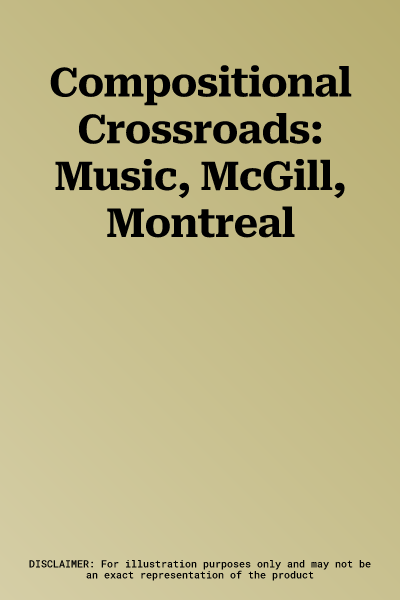McGill University's Faculty of Music - now the Schulich School - has
been a centre of new music in Canada for decades, helping to shape
contemporary composition, electro-acoustic research, performance, and
sound recording. Compositional Crossroads focuses on McGill's location
in a culturally dynamic city and shows how the interplay between place,
community, identity, and memory and individuals, faculty, and students
created institutional pathways that have lead to an explosion of new
music activity. Visionary deans, composers, musicologists, and students
associated with the Faculty of Music between 1970-2004 offer insights
into the early contributions of Istvan Anhalt, the birth of the
Electronic Music Studio and McGill Records, the importance of visiting
composer-teachers, opportunities for composer/performer collaborations,
the development of performing spaces and ensembles, and new ways of
considering sonic creativity. Several essays are devoted to major
composers who taught at the school, including Bengt Hambraeus, alcides
lanza, Brian Cherney, Bruce Mather, John Rea, and Denys Bouliane.
Contributors include Robin Elliott (Toronto), alcides lanza (emeritus,
McGill), John Rea (McGill), Paul Pedersen (emeritus, Toronto), James
Harley (Guelph), Laurie Radford (City University, London), Bruce Mather
(McGill), Pamela Jones (author, Montreal), Neil Middleton (Montreal),
Steven Huebner (McGill), Jérôme Blais (Dalhousie), and Patrick Levesque
(Université de Montreal).

